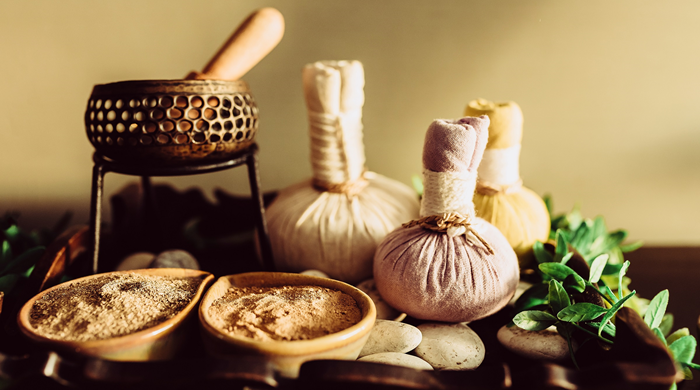
Ayurveda: The common myths around it
Ayurveda has been in midst of a lot of debate in recent days. While most households believe Ayurveda practices as home remedies, very few people depends on it for diseases that are more serious. The believers of modern medicines also question the validity of Ayurveda. As a result, the age old medicinal practice now find itself in a position where it needs to prove itself once again in the current methodology of measurement. Although many believes that the healing is definite, Ayurveda medicinal practice has multiple myths and misconceptions around the globe. There are lot of rumors which is not true.
Here we look at some of the very common myths around Ayurveda.
Myth 1: Ayurveda is not science
Unfortunately, It has been questioned a lot in recent days with the Indian Medical Association openly calling it quackery. Even Wikipedia mentions it as Pseudoscience. What has not been taken into account is the 5000 year old history of Ayurveda being into existence and passing the test of time through observation, trial and error and experimentation procedure.
But, believers of Ayurveda are creating ways in which it can be measured against modern day science. Every Ayurvedic procedures are now tested in research institutes and the clinical trials are registered in clinical trial registry which is the single platform for all fields of medicine.
The modern day Ayurvedic doctors get trained as per proper scientific procedures. The graduation degree of Ayurveda is called Bachelor of Ayurvedic medicine and Surgery B.A.M.S. is a five and a half years of intense study of Ayurvedic and western medical principles, including anatomy, physiology, pathology, clinical methodology, diagnostic methods etc. A Bachelor’s degree holder of Ayurveda is called Doctor as he/she has to learn western medicine and Ayurvedic medicine. Many B.A.M.S. doctors even go to work in modern day hospitals.
Myth 2: Ayurveda procedures take longer time to heal diseases
Ayurveda believers will always tell you that instant remedies are not long lasting. Ayurveda generally follows a process of holistic healing than just relieving the symptoms. It treats body as a whole. It targets the root cause of the disease, ensures complete healing, and reinstates the body’s defense’s against the disease. This is often mistakenly seen as a long healing time. However, that does not mean that Ayurvedic medicines cannot treat smaller diseases immediately.
Myth 3: Ayurveda medicines do not have side effect
This is the most commonly believed myth and today, Ayurvedic products are made available on shelf for public use. Ayurvedic medicines in right dosage combination are absolutely harmless, but if the dosage is wrong or combination is wrong then problems may occur. For instance- certain drugs need to be consumed with milk after food. But, some drugs if consumed with food triggers side-effects. No one should self-administer Ayurvedic products without proper consultation. There can be implications and side effects when taken incorrectly. Therefore, the best thing to do is to consult a qualified ayurvedic physician before taking medicines.
Myth 4: Ayurveda is mostly home remedies
It is a holistic system of medicine that involves both preventive and curative strategies employing natural herbs, minerals, healthy diet, oil massages, exertion-free exercises, etc. to reduce stress, tune body’s natural rhythm, and to harmonize between human and nature. Home remedies are just a part of it practiced at homes.
The overall medicinal practice has multiple branches including surgical procedures and requires a deep learning to gain mastery. The current day Ayurveda doctors undergo thorough training of five and half years before they get their graduate degree. In the post-graduation level, Ayurveda doctors further get to specialize themselves in multiple fields namely Kayachikitsa (Internal Medicine), Prasuti Tantra (Gynecology and Obstetrics), Kaumarabritya (Pediatrics and Neonatal) , ShalyaTantra (Surgery), Agada Tantra (Toxicology), Shalakya (ENT), BhutaVaidya (Psychiatry), Rasayana (Geriatrics/Rejuvenation therapy).
Just like understanding the treatment or administering it, developing medicines is also an integral part of any medicinal field. Some Ayurvedic medicines have such specific methods of preparation that only the most skilled technicians are allowed to manufacture then. While the basis of Ayurvedic medicines are herbs they utilize sophisticated methods including use of metals such as gold and mercury in very carefully carried out procedures to create some of the most potent cures. Hence, referring Ayurveda as only few home remedies does not speak the truth about it.
Myth 5: Ayurveda medicines never expire
There are certain Ayurvedic medicines made of fermented sugary syrups, which actually do not usually mention expiry dates. In Ayurveda terminologies these category of medicines are Asava/ Arista and Gritha. In fact, many practitioners suggest that the potency of some of the medicines in these categories increase with aging.
However, that said, it will be wrong to assume that none of Ayurvedic medicines have expiry date. Most Ayurveda medicines have expiry date of 3 months to 6 months. Some Ayurvedic medicines are even recommended to be consumed within a day. The herbs added in the medicines tend to loose their medicinal properties after the mentioned expiry date.
It is always necessary to refer to the expiry date or ask the doctor about the expiry date of the medicine. In case, the expiry date is not mentioned, a period of one year from the date of manufacturing of the medicine is the maximum validity of the same.
Ayurveda is becoming increasingly popular across the world (even in western countries) with a growing awareness for a holistic lifestyle. People are looking for a more all round approach to health that includes medicine as well as exercise and mental relaxation. As the research and scientific validation around Ayurveda increase, its acceptability will increase even more. But, along with the process of researches to improve scientific validation, it is necessary to create awareness about Ayurveda, its basic principles and concepts.